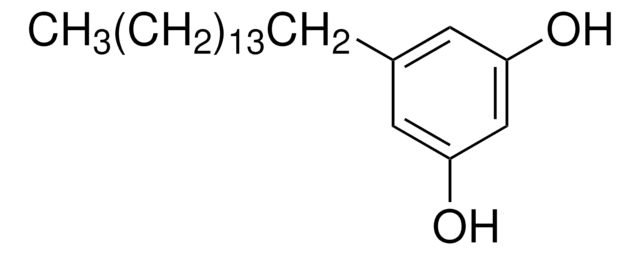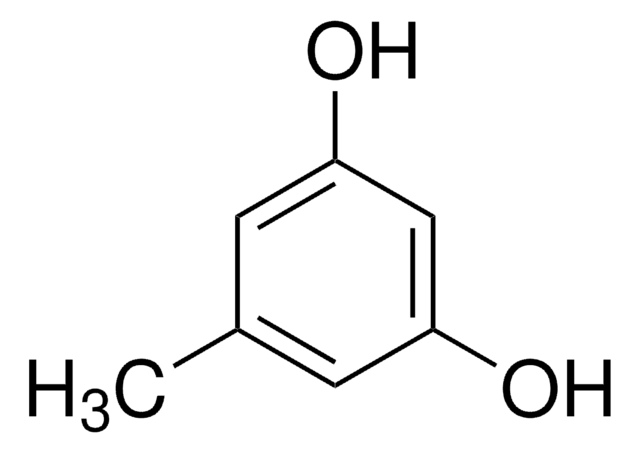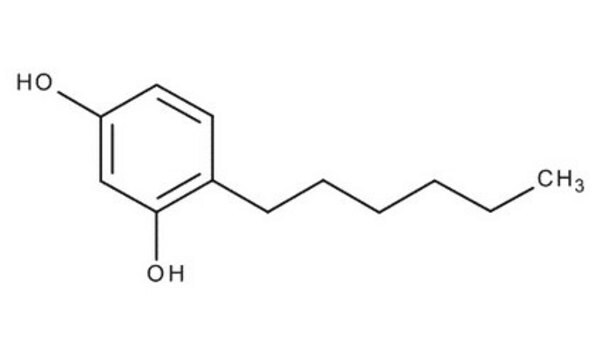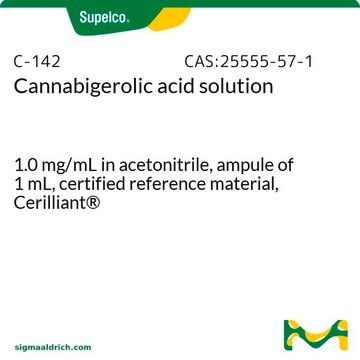152633
Olivetol
95%
Sinónimos:
1,3-Dihydroxy-5-pentylbenzene, 3,5-Dihydroxyamylbenzene, 5-Pentylresorcinol
About This Item
Productos recomendados
Quality Level
assay
95%
form
solid
mp
46-48 °C (lit.)
SMILES string
CCCCCc1cc(O)cc(O)c1
InChI
1S/C11H16O2/c1-2-3-4-5-9-6-10(12)8-11(13)7-9/h6-8,12-13H,2-5H2,1H3
InChI key
IRMPFYJSHJGOPE-UHFFFAOYSA-N
¿Está buscando productos similares? Visita Guía de comparación de productos
Application
signalword
Danger
Hazard Classifications
Acute Tox. 4 Oral - Aquatic Acute 1 - Aquatic Chronic 3 - Eye Dam. 1 - Skin Irrit. 2 - Skin Sens. 1B - STOT SE 1 Oral - STOT SE 2 Oral
target_organs
Central nervous system,Blood, Respiratory system
Storage Class
6.1C - Combustible acute toxic Cat.3 / toxic compounds or compounds which causing chronic effects
wgk_germany
WGK 2
flash_point_f
235.4 °F - closed cup
flash_point_c
113 °C - closed cup
ppe
dust mask type N95 (US), Eyeshields, Gloves
Elija entre una de las versiones más recientes:
¿Ya tiene este producto?
Encuentre la documentación para los productos que ha comprado recientemente en la Biblioteca de documentos.
Los clientes también vieron
Nuestro equipo de científicos tiene experiencia en todas las áreas de investigación: Ciencias de la vida, Ciencia de los materiales, Síntesis química, Cromatografía, Analítica y muchas otras.
Póngase en contacto con el Servicio técnico
















